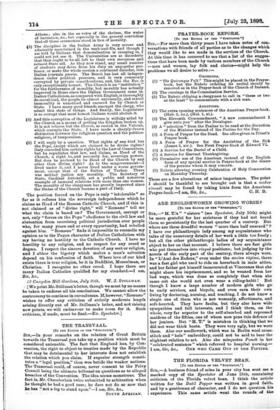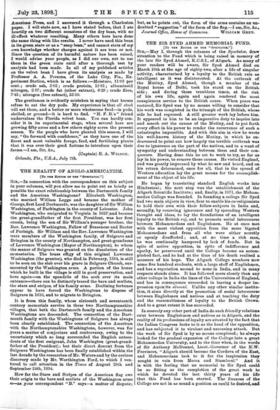THE FLORIDA VELVET BEAN.
[To THE EDITOR Of TER " SPECTATOR:] SIR,—A business friend of mine in your city has sent me a- marked copy of the Spectator of June 25th, containing criticism of the Florida velvet bean. I think the article- written for the Datil Pepper was written in good faith, and by a gentleman of character, and I do not question hia experience. This same article went the rounds a the American Press, and I answered it through a Charleston paper. I will state now, as I have stated before, that I ate heartily on two different occasions of the dry bean, with no ill-effect whatever resulting. Many others here have done -the same thing with like results. I never have used this bean in its green state or as a "snap bean," and cannot state of my own knowledge whether charges against it are true or not. Since the question of its harmful nature has been raised, 1 would advise your people, as I did our own, not to use them in the green state until after a thorough test by analysis had been made. In all of my published articles -on the velvet bean I have given its analysis as made by Professor A. A. Persons, of the Lake City, Fla., Ex- periment Station, which is as follows :—Moisture, 11.93 per -cent.; crude ash, 202; crude protein, 1181; albuminoid nitrogen, 287; crude fat (ether extract), 6.29 ; crude fibre,
• .745 ; nitrogen (free extract), 53 50.
The gentleman is evidently mistaken in saying that horses refuse to eat the dry pods. My experience is that all stock will eat them, and a better or more wholesome food—in pods, shelled, or ground—it is hard to find. "H. F. B.'s " friend undervalues the Florida velvet bean. You can hardly con- sider it in its experimental stage, when several here are growing fifty acres and a few others eighty acres the present season. To the people who have planted this season, I will say, "Go forward with confidence," as they have one of the finest and most valuable forage, feed, and fertilising plants that it was ever their good fortune to introduce upon their darms.—I am, Sir, &ea



































 Previous page
Previous page